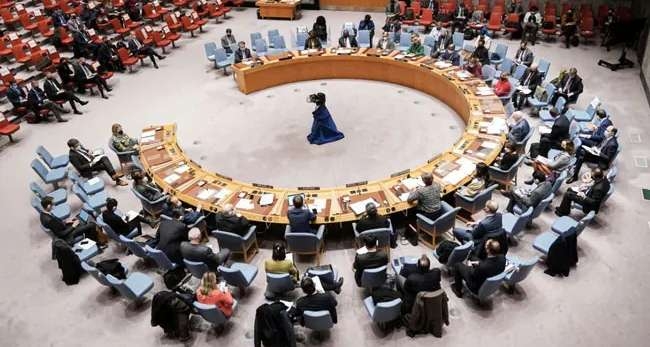The stormy exchanges between the American and Russian representatives at the UN during the session of the Security Council, held yesterday Wednesday, February 28, highlighted the deep divisions and the geopolitical rivalries which hinder the efforts aimed at resolving the crisis in Gaza.
The stormy exchanges between the American and Russian representatives at the UN during the session of the Security Council, held yesterday Tuesday, February 28, highlighted the deep divisions and the geopolitical rivalries which hamper the efforts aimed at resolving the crisis in Gaza, reports TNT World.
The Russian representative, Vassily Nebenzia, strongly denounced the attitude of his “Western colleagues”, openly accusing the United States of allowing Israel to use hunger as a weapon of war in the ongoing conflict.
He also criticized the United States’s decision to block the UN attempts several times to establish a cease-fire, qualifying the American alternative proposal “license to kill”.
In response, the deputy American representative, Robert Wood, did not chew his words, accusing Russia of contributing to humanitarian crises rather than resolving them, notably emphasizing the sufferings of the Ukrainian people under the incessant bombardments.
The exchanges quickly degenerated into a acerbic verbal game, Nebenzia going so far as to accuse the United States of mass destruction in countries like Iraq, Afghanistan and Syria, thus rejecting any comparison between the situation in Ukraine and that in Gaza.
These exchanges reflect not only the current diplomatic impasse, but also underline the hypocrisy and the geopolitical interests which prevail within the Security Council. Nebenzia’s suggestion to impose sanctions against the United States highlights the extent of disagreement and growing frustration in the face of international inaction in the face of the humanitarian crisis in Gaza.
In the end, this confrontation between the two superpowers only underlines the failure of the international system to protect innocent civilians trapped in armed conflicts, and highlights the urgent need for effective diplomatic solutions and a real political will to put an end to the suffering of the populations affected by these crises.








